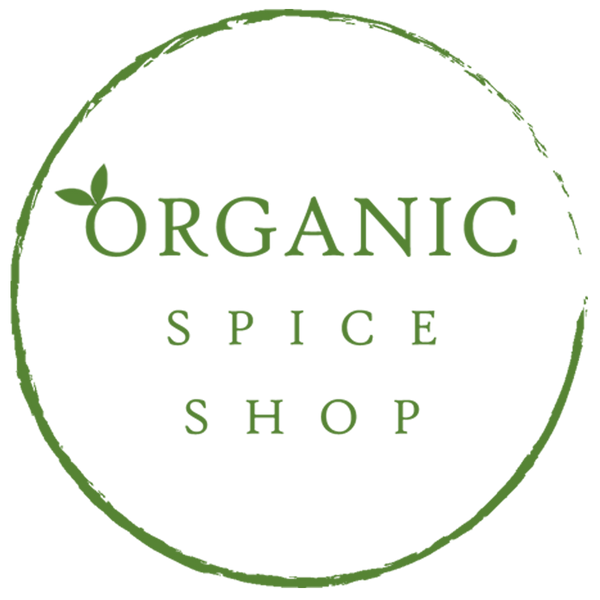
Organic Spices: Nature’s Purest Flavor
When you think about flavor, what’s the first thing that comes to mind? Maybe a warm curry, a sweet cinnamon bun, or a cup of spiced tea. Behind each of those experiences is one small but mighty ingredient: spices.
But not all spices are created equal.
Today, we’re diving into the world of organic spices, what makes them different, why they matter, and which ones deserve a top spot in your kitchen cabinet, especially organic cinnamon and cloves, two true heroes of the spice world.
What Are Organic Spices?
At their core, organic spices are grown without the use of synthetic pesticides, herbicides, or chemical fertilizers. They’re also free from artificial additives, preservatives and often undergo minimal processing.
Why does that matter?
Because when you’re working with something as potent as a spice, a concentrated form of flavor and aroma, purity counts. You don’t want hidden residues or chemical traces in what’s supposed to be nature’s most vibrant seasoning.
Plus, organic farming practices support soil health, biodiversity, and sustainability, meaning every pinch of organic spice supports a healthier planet.
The Power of Organic Cinnamon
Let’s start with one of the most beloved spices of all: cinnamon.
Most store-bought cinnamon is cassia cinnamon, cheaper, more bitter, and higher in coumarin, a naturally occurring compound that can be harmful in large amounts.
Organic Ceylon cinnamon, on the other hand, is the real deal:
- Delicate and sweet in flavor
- Low in coumarin (safer for regular use)
- Grown in Sri Lanka, where it's hand-rolled and sun-dried
- Rich in antioxidants and linked to blood sugar support
Use it in:
- Morning oats
- Teas and lattes
- Baking and desserts
- Even face masks and DIY hair oils
When it’s organic, you're also avoiding hidden chemical residues often found in conventionally grown bark.
The Magic of Organic Cloves
Cloves are tiny, dried flower buds, but don’t let their size fool you. These little powerhouses are packed with:
- Eugenol, a natural compound with strong antimicrobial and pain-relieving properties
- Warm, rich aroma that lifts both sweet and savory dishes
- Traditional uses in oral care and natural remedies
Organic cloves are especially important because:
- They're highly concentrated, so any chemical residue matters more
- Conventionally grown cloves are often treated with fungicides
- The organic variety tends to retain better oil content and aroma
Use organic cloves in:
- Curries and masalas
- Chai blends
- Baked goods and stews
- Clove-infused oils for skin and dental care
Other Organic Spices Worth Adding to Your Pantry
Organic Turmeric
- Anti-inflammatory properties
- Best used with black pepper (which boosts curcumin absorption)
- Perfect for golden milk, rice, or face masks
Organic Black Pepper
- Often irradiated in conventional form, organic food avoids that
- Boosts digestion, flavor, and turmeric benefits
Organic Cardamom
- Complex aroma: minty, floral, sweet
- Excellent in both coffee and curries
- More flavorful when grown organically in shade-rich farms
Organic Ginger
- Zesty, warming, and helpful for digestion
- Use fresh or dried in teas, stir-fries, or baked goods
Why Organic Spices Taste Better
It’s not just about being “cleaner”, organic spices taste better.
Here’s why:
- Grown in richer, healthier soil
- Harvested in smaller batches
- Processed with less heat and fewer additives, preserving essential oils
The result? Brighter, bolder flavor in every pinch. You end up using less because the flavor is more concentrated and balanced.
Every time you choose organic cinnamon over cassia, or organic cloves over bulk imports, you're doing three things:
- Protecting your health
- Enhancing your cooking
- Supporting sustainable agriculture and ethical sourcing
It’s a small decision with a big ripple effect.
How to Shop for Organic Spices
Look for:
- Certified organic labels (USDA, EU organic Standards, India Organic)
- Clear labeling of spice origin (e.g., “Ceylon cinnamon” vs. just “cinnamon”)
- Whole spices, when possible (they last longer and retain more oil)
- Brands that support fair trade and small-scale farmers
Spices do more than add flavor. They tell a story of nature, culture, and care. When you choose organic Ceylon Cinnamon, organic cloves, or any other organic spice, you’re not just seasoning your food. You’re making a conscious, nourishing choice for your body and the world around you.
So go ahead and open your spice jar, take a deep breath, and savor the real aroma of nature, unfiltered.
